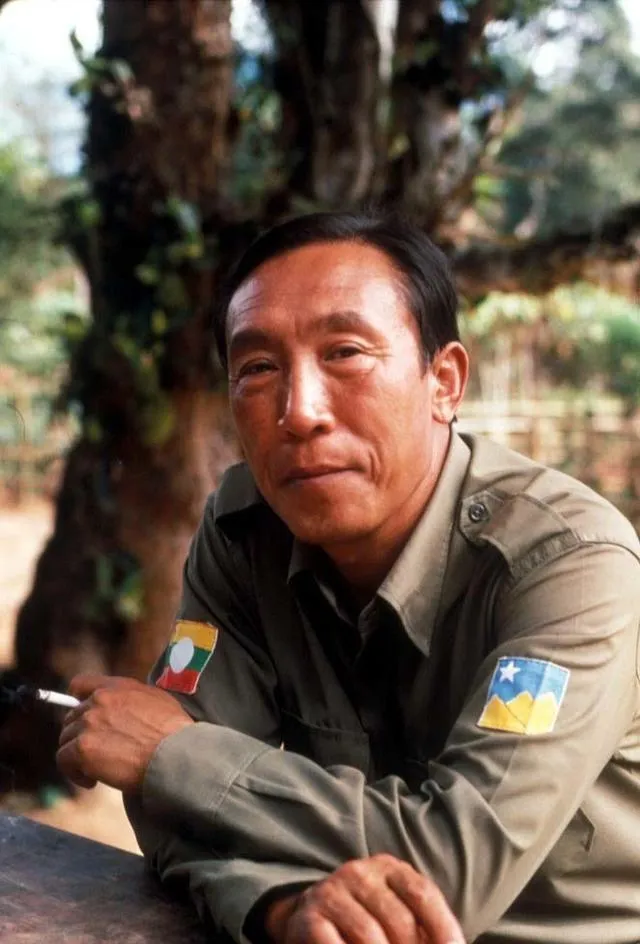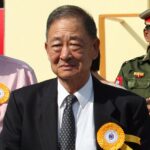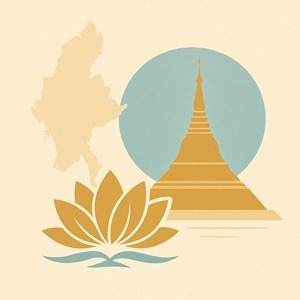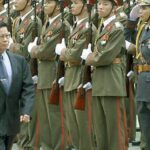
Khun Sa (Chang Chi-Fu): The Notorious Opium King of the Golden Triangle
Early Life and Background
Khun Sa, born Chang Chi-fu in 1934 in Shan State, Myanmar, became one of the world’s most infamous drug lords.
He was an ethnic Shan who grew up during a time of political chaos and armed rebellion.
As a teenager, he joined local militias and became deeply involved in the regional conflicts that shaped modern Myanmar.
Living in the rugged hills of the Golden Triangle—where Myanmar, Thailand, and Laos meet—Khun Sa learned how power worked through weapons, alliances, and control of trade routes.
This environment pushed him toward both military command and the opium trade that would make him famous.
Rise to Power: The Shan United Army
During the 1950s and 1960s, Khun Sa gained influence in the Shan independence movement.
He sought to create an autonomous Shan State free from central control by the Burmese government.
Although he first fought for political freedom, his focus gradually shifted toward economic control through opium.
In 1976, he founded the Shan United Army (SUA).
Under his command, it became one of the most powerful militias in Southeast Asia.
The SUA fought rivals, protected opium routes, and established Khun Sa’s dominance over large territories.
At its height, the army acted as both a military organization and a narcotics empire.
The Reign of the “Opium King”
Khun Sa’s nickname—the “Opium King of the Golden Triangle”—was not an exaggeration.
At one point, he controlled up to 70% of the world’s heroin trade.
His organization managed everything from poppy cultivation to heroin refining and international distribution.
The drug was smuggled through Thailand and Laos to markets in Asia, Europe, and the United States.
It generated hundreds of millions of dollars in annual profits.
Despite international condemnation, Khun Sa presented himself as a nationalist hero defending Shan interests against the Burmese state.
Political Maneuvering and Global Attention
Khun Sa’s power did not rest on weapons alone.
He was also a skilled political strategist who negotiated ceasefires, traded alliances, and even engaged with government forces when it suited his interests.
At times, he portrayed himself as a legitimate Shan leader rather than a criminal.
The U.S. Drug Enforcement Administration (DEA) branded him one of the world’s most wanted traffickers.
Washington offered a $2 million reward for his capture.
However, Khun Sa remained beyond their reach, protected by his remote strongholds and regional influence.
To many Shan people, he remained a symbol of resistance—a complex figure balancing crime, politics, and ethnicity.
Decline and Surrender
By the early 1990s, the world around Khun Sa was changing.
International pressure on Myanmar’s narcotics production grew, and his army faced new military challenges.
Weakened and surrounded, Khun Sa made a surprising decision.
In 1996, he surrendered to the Myanmar government.
Instead of being extradited, he reportedly received amnesty and retired from the drug trade.
He moved to Yangon, where he lived a quiet life until his death in 2007.
Rumors suggest he turned part of his wealth into legitimate businesses during this period.
Legacy and Impact
Khun Sa’s legacy remains deeply divisive.
To the world, he was a notorious drug trafficker responsible for fueling a global heroin crisis.
To some locals, however, he was a Robin Hood-like figure—a man who funded schools, roads, and hospitals in Shan areas ignored by the government.
His career exposed the interconnection between war, poverty, and the drug economy in Myanmar’s borderlands.
Even after his surrender, the Golden Triangle continued to produce narcotics, though his downfall marked a major turning point in the region’s history.
Death
Khun Sa died on October 26, 2007, in Yangon, reportedly of cancer.
His death ended one of the most fascinating and controversial chapters in Myanmar’s modern history.
News outlets across Asia and the West covered his passing, reflecting his global notoriety.
FAQ About Khun Sa
1. Who was Khun Sa?
Khun Sa, born Chang Chi-fu, was an ethnic Shan warlord who led one of the largest heroin trafficking networks in the world.
2. Why was he called the “Opium King”?
He controlled much of the heroin production in the Golden Triangle, once supplying up to 70% of the world’s heroin.
3. Did Khun Sa fight for Shan independence?
Yes, he began as a Shan nationalist fighting for autonomy, though his political goals later mixed with criminal operations.
4. How did Khun Sa avoid capture by foreign authorities?
He lived in heavily fortified regions under his control and negotiated deals that made him untouchable for decades.
5. What happened after he surrendered?
He retired to Yangon after surrendering to the Myanmar government in 1996 and lived there until his death in 2007.
6. What is Khun Sa’s legacy today?
Khun Sa remains both a symbol of ethnic defiance and a reminder of Myanmar’s deep ties to the global narcotics trade.
Summary
Khun Sa’s story reflects the complex reality of Myanmar’s borderlands—where rebellion, crime, and survival intertwine.
His name remains synonymous with both power and tragedy, a man who ruled an empire of opium and became a legend of the Golden Triangle.




